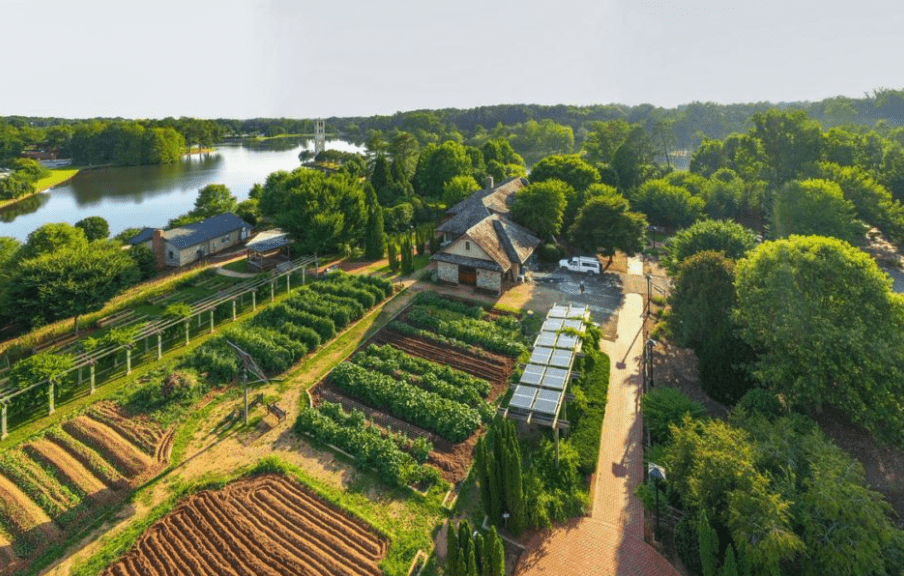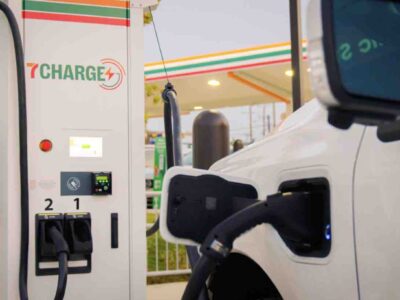Embracing sustainability has become an urgent task as changes to the climate continue to accelerate. Higher education institutions have been implementing courses and research programs designed to prepare students to find more advanced solutions in their careers and everyday life. One college, Furman University, based in Greenville, SC, has been running a one-of-a-kind sustainability major track and seminars for students, faculty, and local business leaders.
Furman has around 3,000 undergraduate students studying various disciplines. The school was one of the first universities to implement a sustainability major.
The program was established in 2012 by Dr. David Shi. Furman’s idyllic campus has made sustainability extremely popular, and many lessons are applied to keep the campus beautiful and efficient.
Three years after the launch of the sciences major, the school was awarded the Association for the Advancement of Sustainability in Higher Education (AASHE) Gold Star for transparency in sustainability reports and education. It currently has a Gold Star awarded in 2021. In 2018, it was ranked the highest-rated higher education institution in the southern U.S. for the discipline.
Since then, the program has undergone a major expansion. Much of the undergraduate curriculum happens at the Shi Institute for Sustainable Communities, which launched in 2020.
Located at the northwest end of Furman’s campus, this plot of land is not a traditional classroom. Students learn about sustainable farming, cleaning the water supply, and how the college uses renewable energy.
These lessons teach students to apply these principles in fields like law, urban planning, and business development.
“At the Shi Institute for Sustainable Communities, we envision a world that meets the needs of all people within the means of the living planet,” Laura Bain, associate director of sustainability assessment, told Consensus. “True sustainability requires cross-disciplinary work that addresses both the planet’s finite boundaries and the basic needs of humanity.”
“We continue to work on campus, growing our student fellowship program and launching an EcoReps program, and are expanding our work into the community and beyond with programs like the Sustainability Leadership Initiative aimed at professionals that seek to integrate sustainability into their work,” Bain said.

Some of the courses are experienced firsthand by the campus population. As part of the Farm to Fork program run by the Bon Appétit company, 8% of the dining hall produce is grown on the sustainability center’s farm and served directly to students and faculty.
Across the highway from the front entrance sits the solar farm that powers Furman’s buildings, complete with local sheep who act as biodynamic lawnmowers. In some instances, students can participate in a sustainability-engaged living program called Greenbelt Engaged Living, where they live in eco-cabins, practice composting, and have set limits on water and electricity use.
“The B.S. in Sustainability Science program also continues to grow and graduate students with the passion and matching skill sets to solve the world’s sustainability challenges,” Bain said.
“Interdisciplinary collaboration with our top-notch faculty and talented students is what makes the Shi Institute and Furman University an extraordinary place.”
For faculty looking to learn more about living a greener lifestyle or incorporating themes into their lesson plans, the Faculty Affiliate Program is available. Staff members from academic departments participate in this continuous learning.
Students and faculty aren’t the only ones who can continue their environmental learning. The school launched a Sustainability Leaders Initiative in June 2022, empowering companies in the Greenville-Spartanburg, SC, area to implement eco-friendly projects.
Representatives of some major organizations like Coca-Cola, Michelin Tires, BMW, and Milliken attended seminars to help develop a sustainable future for their employees and companies. The aim was to educate leaders on reducing their carbon footprint and energy consumption.
Furman’s enriching sustainability education program can serve as a role model for other institutions. As sustainability becomes more important and prevalent in everyday life, there will be a need for leaders to teach the best methods to conserve energy, grow our food, and improve our environment.





